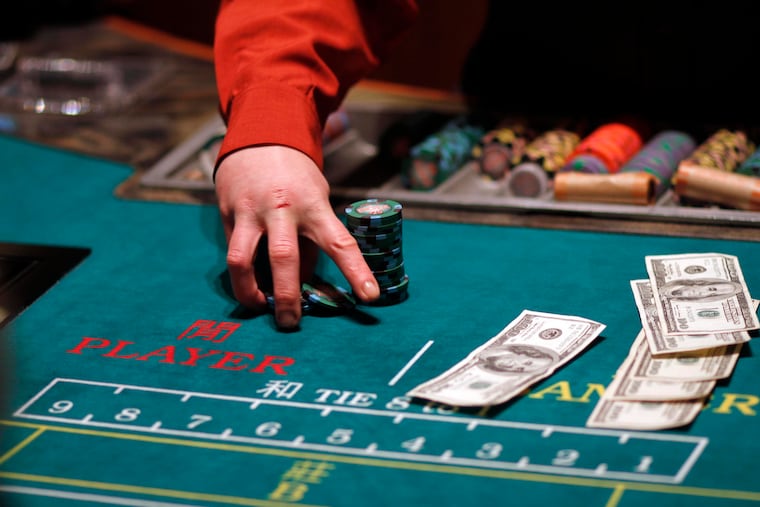Coronavirus brings a new set of troubles for problem gamblers
There's already a stigma for those with a gambling addiction. Self-confinement and the dramatic rise in unemployment will make things worse.

Just because casinos are closed during the coronavirus pandemic doesn’t mean the folks who deal with problem gambling don’t have concerns. Gamblers will still gamble.
“People with gambling problems are at a higher risk now because they are isolated, have poor access to healthcare, poor access to resources" to quit, said Keith Whyte, executive director for the National Council on Problem Gambling.
They also have online gaming available in all three states in the Philadelphia region — and, especially now, an abundance of time.
» Problem gaming resources: Pennsylvania | New Jersey | Delaware
Bovada, a popular offshore betting site not legal in the United States, has odds on whether Thursday’s temperature in Philadelphia will be over or under 35 degrees. It’s funny to the recreational bettor, but could be trouble for the addicted.
“We may also see a spike in day trading or other highly speculative investing,” Whyte said, “which is close enough to gambling for people to get their thrills.”
And lose their money.
Mainstream sports around the world have dried up, but games go on elsewhere.
Table Tennis, Belarussian soccer, and minor league golf were just some of the events being offered Wednesday on the website BetRivers.com. Sports bettors, who have enough trouble figuring out Eagles vs. Cowboys, are basically flipping a coin when it comes to Nicaraguan soccer.
Whyte doesn’t condemn gambling, he just looks out for the people who fall through the cracks. An estimated two million Americans meet the standard criteria for gambling addiction. Another 4 to 6 million could be considered to have a problem.
“Gambling is the last means of raising funds without raising taxes,” he said. “If a shutdown continues, some states will try to out-gamble their neighbors” with online expansion.
Las Vegas-based CDC Gaming Reports reported that MGM Resorts International, which counts the Borgata as one of its 20 properties in the United States, is losing $14.4 million per day alone.
This leads to another concern among those in the problem-gaming field: Many of the programs designed to help people with gambling problems are funded from taxes levied on legalized gaming. In January, with football playoffs leading the way, New Jersey collected $6.6 million in taxes just on sports betting. March, especially with the now-canceled NCAA Tournament, was going to be even bigger.
Jody Bechtold, CEO for the Better Institute in Pittsburgh, worries about the massive unemployment that is coming.
“People in recovery will go back to gambling [and] thinking that this will be a way to deal with their economic problems,” she said. “These are desperate times and they will use the desperate measures of the gambler’s attitude.”
Social distancing and home confinement also present problems for those who wish to keep their issues private. For some, it’s difficult to open up to a counselor when someone else in the house might hear.
Said Bechtold: “We’re going to see more relapses.”